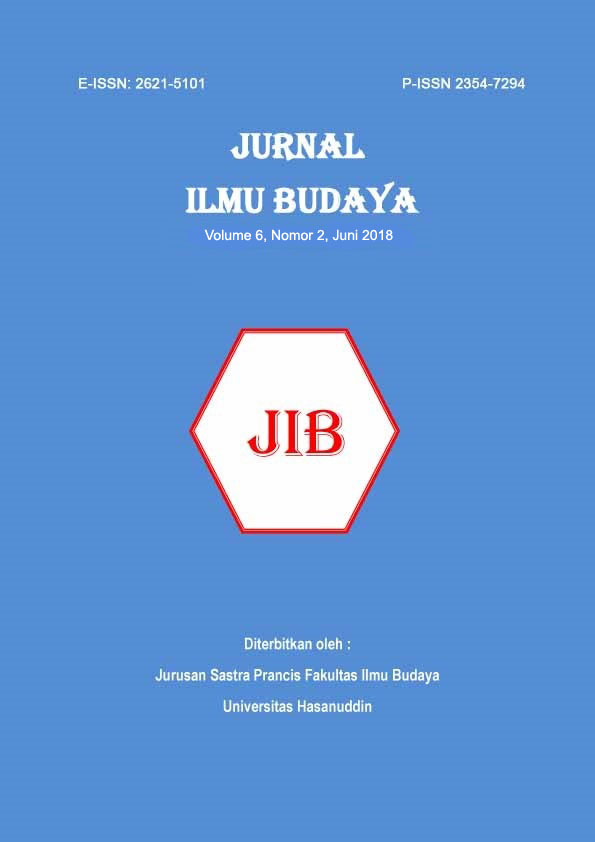ANALISIS KONTRASTIF PEMBENTUKAN VERBA BAHASA ARAB DAN BAHASA INDONESIA SERTA IMPLIKASINYA DALAM PEMBELAJARAN BAHASA ARAB
DOI:
https://doi.org/10.34050/jib.v6i2.5641Keywords:
Morphology, Verb, LearningAbstract
The construction Arabic dan Indonesian verbs within implication of learning Arabic language. The purpose of this study is to describe the process of formation of verbs Arabic and Indonesian, analyzing the difference between the two processes and outlines the implications of the differences in Arabic and Indonesian verb formation on Arabic learning. This research includes qualitative research. The data in this study are written data, whether published in articles, papers, books, and those contained in other writings related to the formation of verbs Arabic and Indonesian language and learning Arabic. The data collection methods used to refer to the technical note. The data collected in this study were analyzed using contrastive analysis. The results of this study describe the formation of Arabic verbs through internal modification and affixation, while the formation of verbs in the Indonesian language is done through affixation, reduplication and composition. The significant difference between the two is that the formation of verbs in Arabic is always related to time, quantity, and gender so as to reveal time, different numbers or genders are expressed grammatically through verb changes, whereas the formation of verbs in Indonesian is not related to time, and gender so as to reveal semantic concepts of time, quantity, and gender are lexically represented accompanying verbs to form verb phrases without altering their verb forms. The differences between them have implications for the Arabic learning process, namely the emergence of difficulties faced by Arabic learners.Downloads
Download data is not yet available.
Downloads
Published
2018-12-13
Issue
Section
Articles
License
Copyright (c) 2018 JURNAL ILMU BUDAYA

This work is licensed under a Creative Commons Attribution-NonCommercial 4.0 International License.







